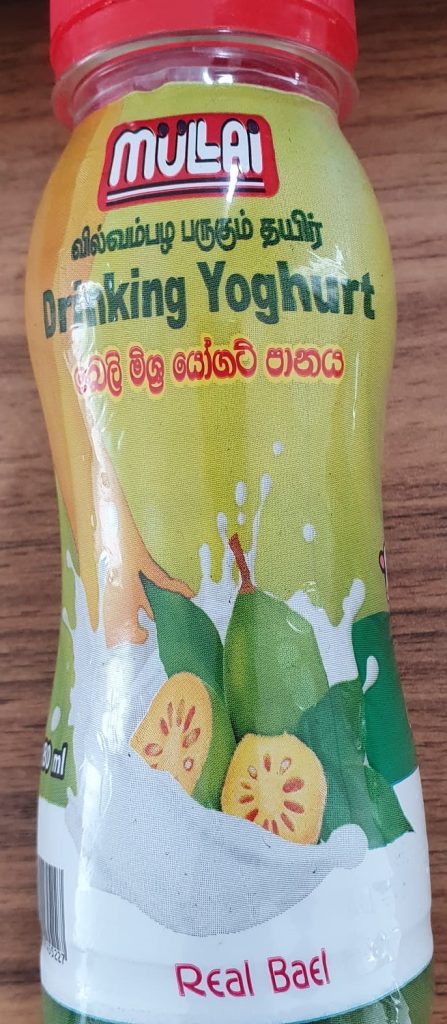By Jekhan Aruliah
Entrepreneurs turn ideas into business and money. Rubbish rescued from tips make valuable construction materials and fuels. Microwave ovens and matchsticks, accidental discoveries, became huge industries. An annoyingly sticky substance sold as Superglue. Another pathetically weak glue led to Post-It Notes. Antibiotics and Insulin, discovered by chance observation, are multibillion dollar businesses.
It's not just money at stake, also fame. Have you heard of Mr. Loud? No? Have you heard of Mr. Biro? A name made famous by the biro ballpoint pen. Mr Loud’s ballpoint pen was patented in 1888. Without business success Loud’s patent lapsed. If he had hooked up with an entrepreneur we would be borrowing and losing each other’s Louds. Biro’s patent was issued fifty years later in 1938. For decades Biro’s pens have been in huge demand. In 1950 another entrepreneur, Marcel Bich (with an ‘h’), used new plastic manufacturing techniques to produce the biro so cheaply it became disposable. When empty of ink you didn’t refill it, you threw it and bought a new one. The Bic (without an ‘h’) biro became a great commercial success found today in offices, homes and pockets around the World. By 2006, 56 years after its launch, one hundred billion Bics had been sold.
The combination of Inspiration, Invention, Innovation, Execution and Commercialisation is the magic. It is the magic that creates businesses, jobs, wages and profits. And generates taxes to pay for schools and hospitals. Taking Inspiration to Investors and Manufacturers. Guiding Inventions down Development Paths and Sales Channels into Markets. Selling Innovations to Consumers. Bringing Incomes to workers and dividends to shareholders.
The famous universities including Stanford and Harvard, Oxford & Cambridge, Imperial and UCL, and numerous Indian Institutes of Technology (IITs) successfully link academics and entrepreneurs. They boast thousands of spinoffs raising billions of dollars of capital. These leading universities have very sharp expensive business lawyers representing them to negotiate lucrative linkages with very sharp lawyers expensively representing the entrepreneurs. Negotiating not least to ensure the university gets its bite taking a share as equity or royalty. Students and professors give birth to companies, with some growing into world leading giants.
Our Sri Lankan universities and higher education establishments want and need to do the same. Sri Lanka’s University Business Link, UBL, is a nationwide programme running at universities and higher education establishments. UBL’s stated purpose, I quote from Sri Lanka’s University Grants Commission: Strengthening of University Business Linkage (UBL) in State Universities :
“The recommended focal areas for the development of University Business Linkages in universities are as follows.
- Developing practice and business oriented student's projects
- Organizing trainings and coaching activities for businesses
- Implementing (technical) consulting services for businesses
- Implementing an IP policy at universities
- Promoting the creation of University Spin-offs
- Promoting research cooperation between businesses and the university
- Promoting strategic alliances with the private sector in order to develop the research infrastructures and capacities at universities”

Jaffna University UBL
I was invited to visit the Jaffna University UBL office by its director Professor T.Eswaramohan, Professor of Zoology. Here I met some of the team managed by Anu Rakavan, a Jaffna University graduate. I have met Rakavan before, he is involved in many other projects particularly environmental. His team includes two recent graduates and a school leaver from Hartley College, a leading Jaffna school. The university is transitioning research into patents. It is still early days, just 14 patents applied for with 3 granted. But these three are the first patents owned by Jaffna University in its 48 year history.
One of these patents, from the Sri Lanka Patent Office, is a ‘smart tap’ programmed for running time and quantity of soap depending on the circumstance. A hospital may need more soap and time than a school or restaurant. Ensuring proper hygiene, reducing waste of water and of soap. Other ideas include 3D printed face masks, to ensure close and comfortable fit for hospital workers and also for all of us if there is another pandemic.
Sea cucumber, a very high value industry now taking off in the Jaffna peninsula, suffer from calcium depositing on its skin. Jaffna University has developed an alternative to the commonly used labour intensive manual scrubbing that bruises the animal reducing its value. The university has developed a process to raise Black Soldier Fly larvae in huge quantities which make a great food source for fish, pigs and poultry.
Jaffna University’s Agriculture Department developed a syrup of Bael fruit. This fruit readily available in Sri Lanka rich in vitamins is also used in ayurvedic preparations. In 2022 the university licenced the syrup, working with the Mullaitivu based firm Mullai Milk Products to produce a tasty healthy yoghurt drink which is already on sale.
A particularly interesting piece of research uses palmyrah pulp, from the fruit of the iconic ubiquitous Jaffna palmyrah palm, to make food for ornamental fish. Rakavan tells me the particular commercial attraction of this healthy supplement is it greatly improves the colour of the ornamental fish, displayed as pets in fish tanks.
UBL-Jaffna provides various support services: Filing for Patents, Trade Marks, Copyright and Industrial Design. Finding Commercial Partners, negotiating agreements, forming startups and spinoffs.
The people are the product
The greatest products of any university, more than inventions and bright ideas, are its students and graduates. If ideas are the fish, the graduates are the fishermen. As part of the strategy to build up its students UBL-Jaffna conducts ‘pitching events’. Here small teams of undergraduates engage with real life micro and small enterprises in the North. Together they develop a business proposal, which the undergraduate team pitches to experienced entrepreneurs. In February this year the event was facilitated by Prof. Kanes K Rajah from the UK. A Member of the Advisory Board of UBL-Jaffna, Prof Kanes has been Professor of Entrepreneurial Behaviour and Innovation at the Royal Agriculture College in the UK. Currently he is Executive Director of the Centre for Executive and Professional Development in London.

Linking is a two way street. Universities can pitch their research at industry, optimistically hoping there is a lucrative application for it. But in reality many academics don’t know what is already out there on the market, nor what is needed, nor what is profitable. Industry knows what the market wants, what will sell, what will make money. Industry should do far more actively seeking and commissioning targeted research from the universities.
The universities may not know the commercial potential of what they are doing. Businesses in turn have inadequate knowledge of the bright ideas bubbling in the universities. University Business Link creates a ladder from the Ivory Towers of academia to the shops and markets around the World. A ladder that brings benefit to our economy at both ends.
You can contact Jaffna UBL at ubl@univ.jfn.ac.lk
( — The writer Jekhan Aruliah was born in Sri Lanka and moved with his family to the UK when he was two years of age. Brought up in London, he graduated from Cambridge University in 1986 with a degree in Natural Sciences. Jekhan then spent over two decades in the IT industry, for half of which he was managing offshore software development for British companies in Colombo and in Gurgaon (India). In 2015 Jekhan decided to move to Jaffna where he is now involved in social and economic projects. He can be contacted at jekhanaruliah@gmail.com — )

